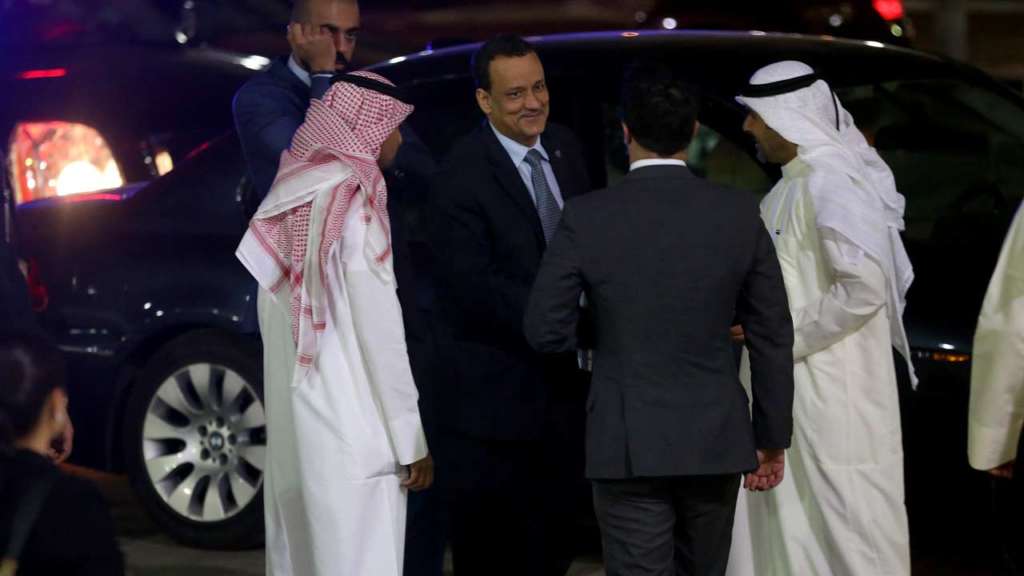Riyadh- U.N. Special Envoy to Yemen Ismail Ould Cheikh Ahmed pointed out that certain positive signs were surfacing atop the question on whether there would be a political understanding for the war-torn country. However, he still confirmed the presence of hurdles and unfettered desecrations along the way.
At a press conference, the U.N. Special Envoy said that the two sides to the conflict in Yemen have concluded their first session on direct deliberations yesterday. As to the outcome of the session, the two parties agreed to three references which would set the outline for the negotiations, the first being the U.N. resolution number 2216, the second being the Gulf initiative and its executive mechanism and the third being the outcome of the comprehensive national discourse.
Not only that, but U.N. Envoy Ahmed stated that the Houthis (a part of the insurgency delegation at the talks) have put forth a proposal offering withdrawal.
The U.N. Envoy pointed out that the negotiations are on the right track. “We have gone a long way and there is a common determination present for reaching a solution and a priority set for achieving a truce,” he said.
There will be a new definition provided for the direction in which the sessions will be conducted; taking into consideration the demands for reaching a solution that covers all security, political, economic and humanitarian strains, the U.N. envoy confirmed.
Both the government and the insurgency delegations have presented cooperative visions for achieving peace in Yemen.
Despite the calm state-of-affairs expressed by the U.N. envoy, he still conveyed the presence of atrocious violations of the ceasefire at some regions of the country. The U.N. envoy confirmed that calls are being made with committees in charge of calming the situation as to also know the reasons behind these violations.
Meanwhile, Yemeni President Abd Rabbuh Mansur Hadi confirmed, in writing, to U.N. Secretary General Ban Ki-moon that his country and administration are keen on working with the U.N. envoy to achieve sustainable peace.
Deputy PM and Yemeni government delegation member Abdulaziz Jabari told Asharq AL-Awsat that “any diversion from the principles agreed upon, which are the U.N. resolution number 2216, the Gulf initiative and its executive mechanism, the outcome of comprehensive national discourse would directly translate into the absence of a peaceful vision for Yemen.”
